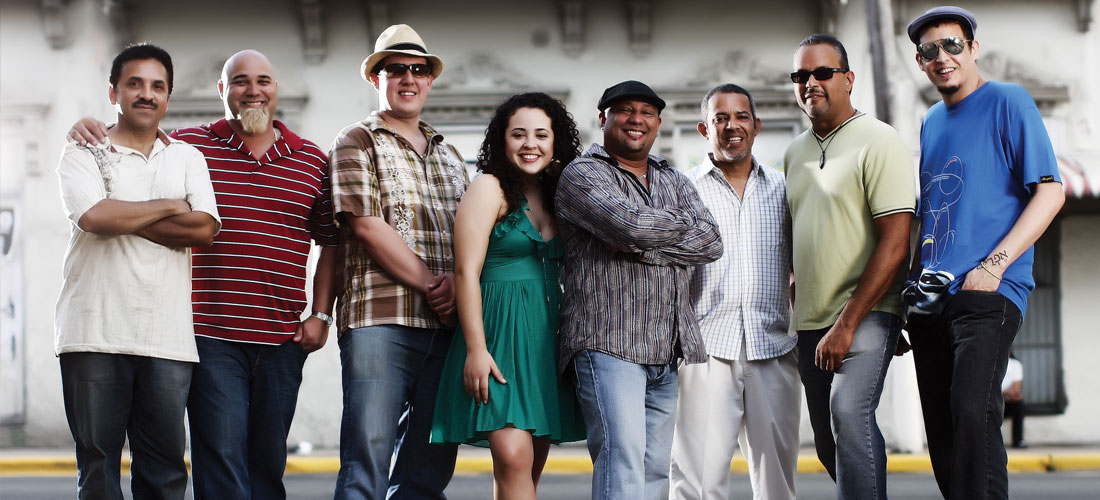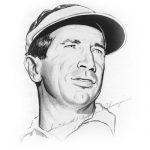
Homegrown Folk
Greensboro brings a local spin to the North Carolina Folk Festival, September 7–9
By Grant Britt
It’s like the circus is coming to town, but without the elephants. The folk festival is back in Greensboro this month, and there’s plenty of trumpeting going on, but it’s of the human, not the animal persuasion. It’s a new, improved version, with some important changes.
The festival belongs to Greensboro now, and henceforth will be known as the North Carolina Folk Festival (ncfolkfestival.com). As part of the original deal that secured the National Folk Festival in Greensboro for three years, the national organizers agreed to let us keep on keeping on with a festival of our own invention.
Former Arts Greensboro President and CEO Tom Philion was instrumental in bringing NFF to town but has retired this year, replaced by Interim President and CEO Amy Grossmann, who worked as program manager/logistics coordinator at the National Council for the Traditional Arts and program director most recently for the Maryland State Arts Council. “I was the one, based up in the offices in Washington, D.C., that took the festival to different communities, so I was part of hiring all the bands and working on logistics for producing the National Folk Festival in other communities,” Grossmann says. She’ll be using her expertise to move the festival along locally while still maintaining national and global ties, explaining, “Our plan is to continue the legacy of the national, continuing to present world-class artists, who come from all over the U.S.” There’ll be international artists as well, but North Carolina artists will be spotlighted. Grossmann says the goal is to have a diverse offering of traditions representing American roots, North Carolina and world traditions.
Grossmann runs the show now, but Philion will still be available as a consultant. “I want to have more time and flexibility to do some other things. A job like this pretty much owns you,” the former director/bassist admits. “I moved to town 18-plus years ago, there are a lot of people who don’t even know me as a musician,” he adds, jokingly referring to himself as “a musician with a day job.” He says he misses performing and hopes to do more of it.
Though Philion’s musical talents won’t be on display in the streets this year, there will be plenty of other music to keep you satiated. Another change will be the omission of a North Carolina–oriented stage. “When the National moved into a community, they always had a stage that was for the state,” Philion says. “We’re integrating North Carolina performers on all stages this year.”
A big part of that integration will focus on Rhiannon Giddens. The former Carolina Chocolate Drops local will be among a number of NC Arts Council Heritage Award-winners on the fest-set list. Giddens broke out big on a solo career in 2013’s Another Day Another Time concert at New York’s Town Hall, blasting out a stellar solo debut on the T Bone Burnett-produced, 2015 “Tomorrow Is My Turn”. “Not only is she the hometown girl, she’s very invested in this event,” Grossmann says. Giddens will be performing in different configurations, with a trio as well as a larger group, plus some more intimate performances. Giddens wants to share her banjo explorations and is hosting a gathering on Saturday morning of the festival that will be a mix of a workshop and TED Talk with different performers and academics. Open to the public, the event, as Grossmann describes it, will be “a deep dive into some conversations and exploration about performance, tradition and history of the banjo.”
As wonderful as it is to have a festival with global artists performing in your own backyard, it’s sometimes a daunting task to haul your sweaty, aching body multiple times up and down the 2-mile downtown festival strip to catch your favorites. Even though the artists perform multiple times on different days, sometimes one day is all you can do. But Grossmann says the big stages are here to stay. “As the festival has grown over the past three years, the sites we’ve chosen accommodate the thousands of people who come to the fest, so that’s going to remain our focus going forward.”
In addition to group performances, the North Carolina Folk Festival will host other special thematic workshops, talk/demos on a particular theme or topic, similar to Giddens’ presentation about the banjo. A fiddle workshop, perhaps, facilitated by a folklorist, with violinists and fiddle players from different traditions discussing and demonstrating their techniques.
Another new element will be a mobile app providing festival-goers with info on vendors and performers. It has a built-in GPS feature with map allowing you to meet up with friends or family among the throngs. The app will also clue fest-goers into surprise performances, pop-up shows throughout the site. “So people who have the mobile app or follow us on social media will get an announcement and we might have an unscheduled performance taking place who knows where,” Grossmann says. But for us old-schoolers bound by the printed page tradition, 95 percent of the performances will still be listed on the printed schedule.
Despite the name change, the lineup will remain diverse and eclectic, from Shashmaqan to Jarekus Singleton, from Sona Jobarteh to Viento de Agua, from The Fitzgeralds to Wesli. Apart from Giddens, (see sidebar), there are a couple of acts that should be on every festivalgoer’s to-do list. For sheer sweaty fun, Nathan and the Zydeco Cha-Chas are the go-to act of the festival. Even if you don’t know how to dance, Nathan Williams’ rollicking rhythms will have you up and attempting variations of half-remembered glory dancing days of the Shing-a-ling or the Funky Chicken. Nathan won’t judge you. “If you can’t dance, wave your hand,” he says. “Seeing people having fun and enjoying themselves, he allows, “That’s the gift right there.”
Just like Clifton Chenier did decades before, Williams mixes in various styles in his sets, covering Ray Charles “I Can’t Stop Loving You” as a chanky-chank waltz with a soulful Hank Williams feel. Jim Croce’s “Bad, Bad Leroy Brown” has even more swagger when translated and transmogrified by Nathan’s accordion. In a typical Cha-Chas’ set, Boozoo Chavis rubs elbows with Otis Redding sandwiched between a rowdy version of “When The Saints Go Marching In” and Archie Bell & the Drells’ 1968 hit “Tighten Up.”
It’ll fool with your head and your feet in a way that’ll have you spinnin’, staggerin’ and callin’ for more.
John Jorgenson Quintet spins you another way, channeling the lightning fast runs of Django Reinhardt’s gypsy jazz. On an array of stringed instruments, Jorgenson dazzles the senses with his own compositions, as well as his translations of Reinhardt’s Hot Club classics. But it’s not just some stuffy re-creation of dusty past glories. Jorgenson is funny as a standup comedian, his between-song patter unlaxing you momentarily before winding you up once again with his string-pulling prowess. His approach makes converts of even the most standoffish jazz observers who previously thought the genre made them nervous.
Perhaps the best thing about the N.C. Folk Fest is the price. It’s free — all day, all night. In an era when a big festival or concert can set you back thousands, for many it’s the only way to go. And multiple appearances by nearly every performer have huge appeal as well, eliminating making agonizing choices between favorites.
Grab your sunscreen, put on your comfortable walking shoes, sling your folding chair over your shoulder and from September 7 through 9, come on downtown for the most free fun of the festival season.. OH
When not slinging deathless prose from his icon-stuffed shack across from the graveyard, Grant Britt races sweatily through the streets in search of mighty fine entertainment for the ear and the feet.





